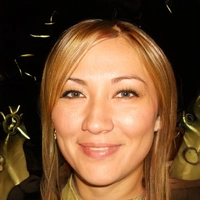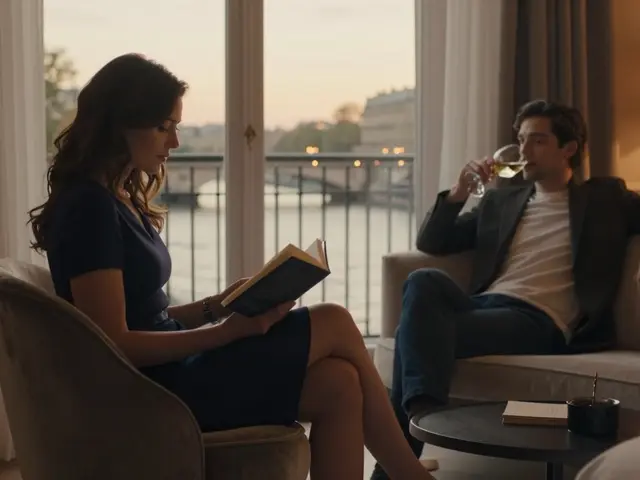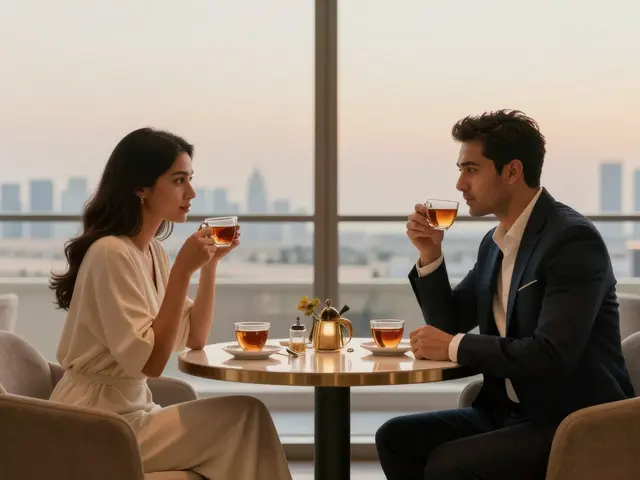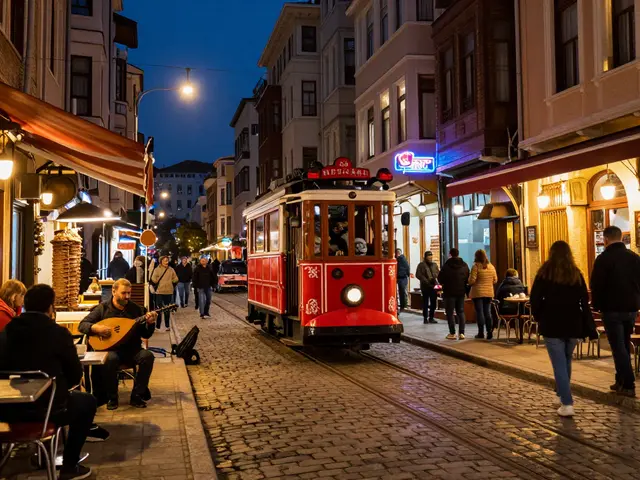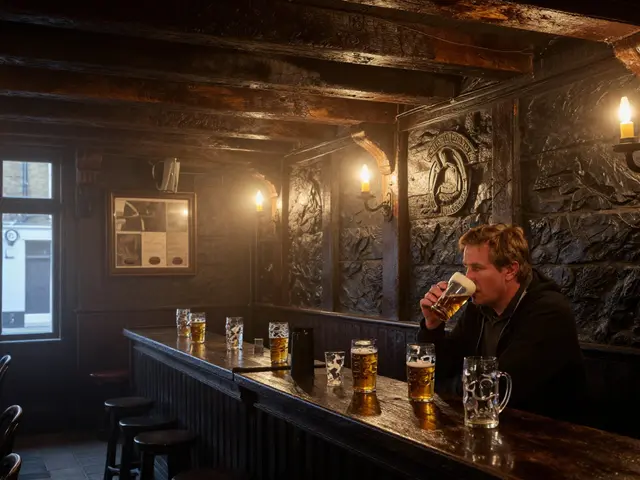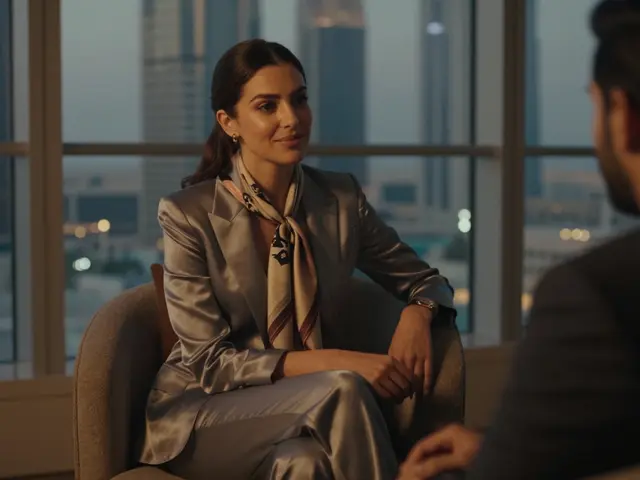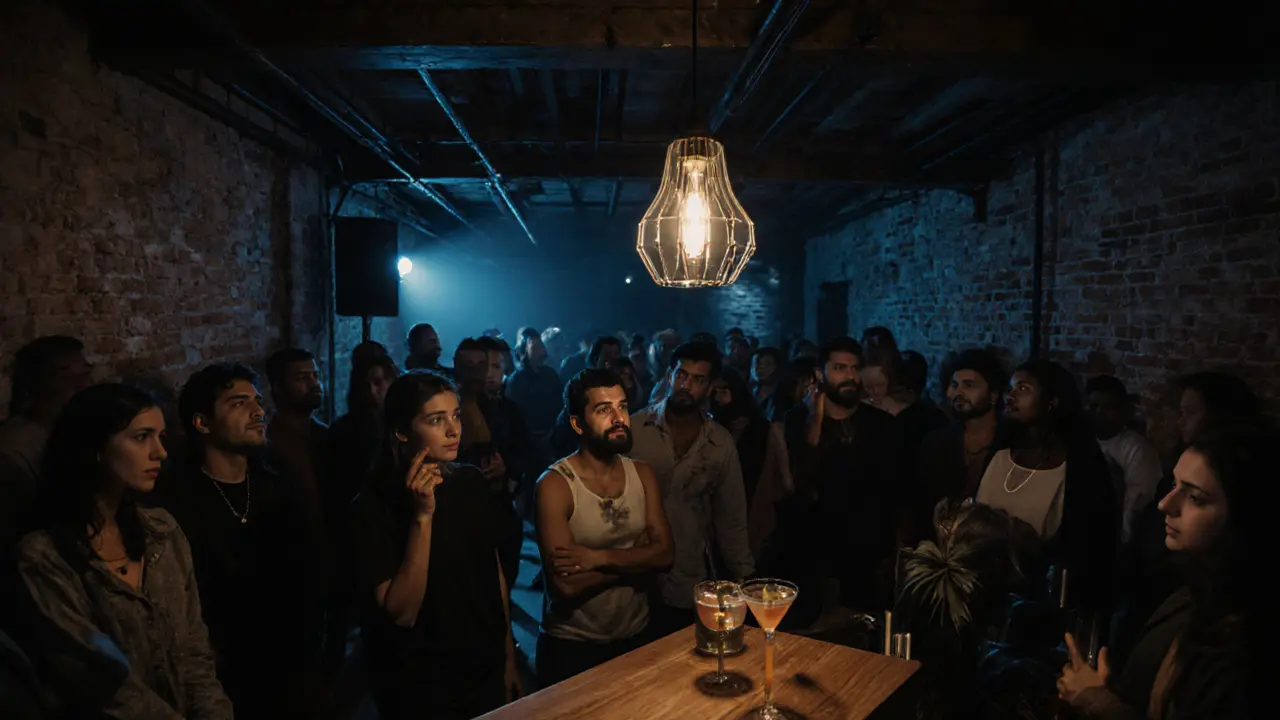
Dubai doesn’t just stay open after sunset-it explodes. While the city’s famous rooftop lounges and mega-clubs still draw crowds, a new wave of underground spots, hidden gardens, and intimate lounges is changing what nightlife means here. Forget the glitz for a minute. The real energy now lives in places you won’t find on Instagram ads.
Where the Crowd Is Shifting
Five years ago, if you wanted to party in Dubai, you went to Skyview, Cielo, or White Dubai. They were the only names that mattered. Today, those places still operate, but they’re no longer the heartbeat. The new generation of clubgoers-locals, expats, and travelers-are looking for atmosphere, not just bass. They want music that surprises them, drinks that feel crafted, and spaces that don’t feel like a theme park.
Take Al Marfa in Al Quoz. Opened in early 2024, it’s tucked inside a converted warehouse with no sign outside. You need a friend’s recommendation or a code sent via WhatsApp to get in. Inside, the lighting is low, the sound system is custom-built by a Berlin engineer, and the DJs play everything from deep house to Arabic experimental beats. No VIP tables. No bottle service pressure. Just a crowd that came to listen. It’s not the biggest, but it’s the most talked-about.
The Rooftop Revolution
Rooftops aren’t going away-they’re getting smarter. Atmosphere 360 on the 52nd floor of the Address Downtown didn’t just upgrade its drinks menu. It redesigned the whole experience. No more standing in line for a photo op. Now, you book a two-hour slot. You get a curated playlist based on your mood (chill, dance, or retro), a tasting flight of Middle Eastern-inspired cocktails, and a chef’s small plates that change weekly. The view? Still breathtaking. But now, it’s part of the meal, not the main attraction.
Then there’s The Nest at Jumeirah Beach Residence. It’s not even technically a rooftop-it’s a suspended garden on the edge of a residential tower. Think hanging vines, wooden decks, and DJs spinning vinyl from 10 PM to 2 AM. No neon. No bottle service. Just ambient lighting, live acoustic sets on weekends, and a crowd that actually talks to each other. It’s the anti-Dubai club. And it’s packed every Friday.
Hidden Bars That Feel Like Secrets
Bar culture in Dubai has matured. It’s no longer about how fancy the glass is-it’s about how well the bartender remembers your name. El Nido, hidden behind a fridge door in a tiny grocery store on Alserkal Avenue, is the best example. Walk in, pick a bottle of Moroccan gin or Emirati whiskey from the shelf, and the owner will mix you something based on your mood. He doesn’t have a menu. He asks: “What did you do today?” Then he makes you a drink that matches your answer. It’s weird. It’s brilliant. And you’ll find yourself going back just to see what he’ll come up with next.
The Quiet Room in Al Fahidi is even more low-key. No music. No lights. Just dim lamps, leather chairs, and a shelf of rare single malts. You can’t book a table. You just show up, sit, and order. The staff doesn’t rush you. The whole place feels like a library for adults who like to sip slowly. It’s open only on Thursdays and Fridays, from 8 PM to midnight. You’ll need to know someone who knows someone to get in. But once you do, you’ll understand why it’s become a cult favorite.
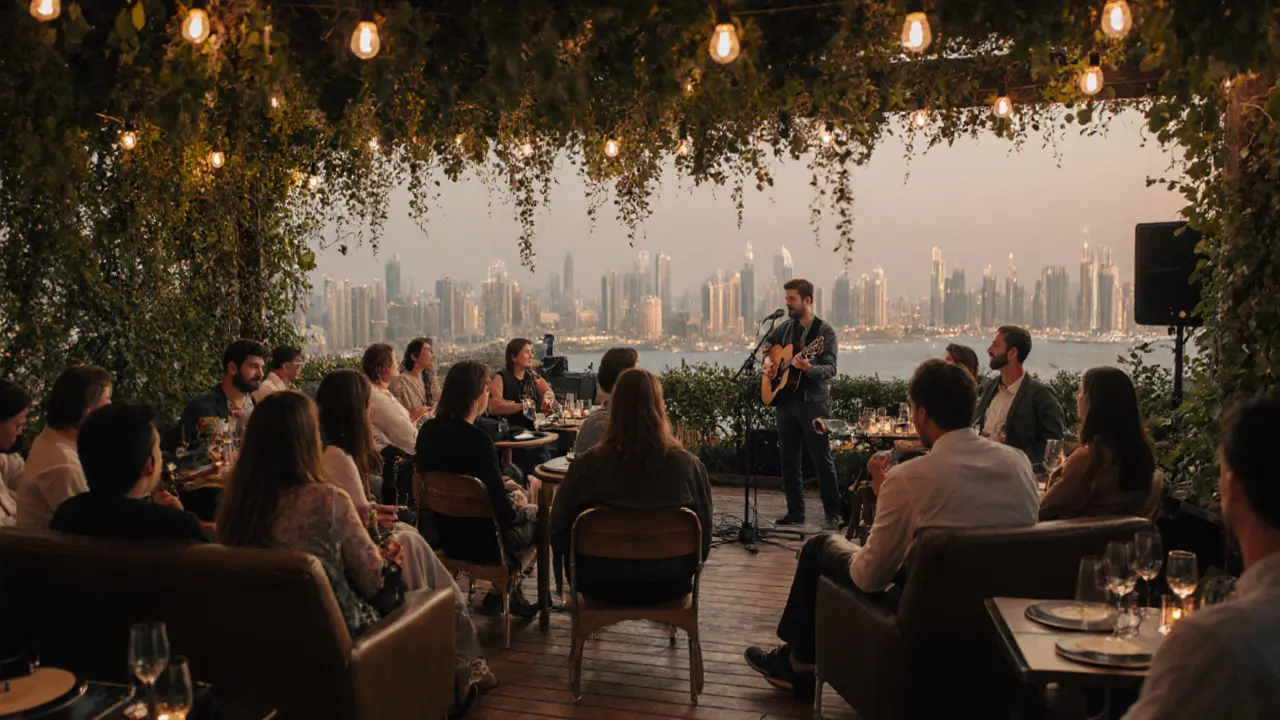
Music That’s Changing the Scene
The sound in Dubai’s new clubs isn’t just house or techno anymore. It’s fusion. Al Hekma in Alserkal Avenue hosts monthly nights where a live oud player jams with a DJ spinning deep house. The result? A hypnotic blend that makes you feel like you’re dancing in a desert under stars, but with a 4/4 beat. These events sell out weeks in advance.
Another trend: Arabic hip-hop nights. Al Qasr, a converted heritage house in Bur Dubai, turns into a hip-hop lounge every Saturday. Local artists like Noura and Khamis drop tracks in Emirati Arabic over beats that sample traditional percussion. The crowd? Mostly Emirati millennials who grew up listening to Drake but still know every word to a classic Khalid Al Qasimi song. It’s not a tourist spot. It’s a cultural moment.
What’s Missing? The Old Rules
The old Dubai nightlife ran on three things: luxury, loudness, and exclusivity. The new scene runs on authenticity, surprise, and connection. You don’t need to wear a suit to get into Al Marfa. You don’t need to spend $500 on bottles to feel welcome at Atmosphere 360. You don’t even need to know the password at El Nido-you just need to be curious.
What’s dying? The clubs that think they’re still in 2018. Places that still charge $100 entry fees for a DJ playing the same 10 tracks every night. Places that treat guests like ATM cards. Those spots are emptying out. The new crowd doesn’t care about brand names. They care about moments.
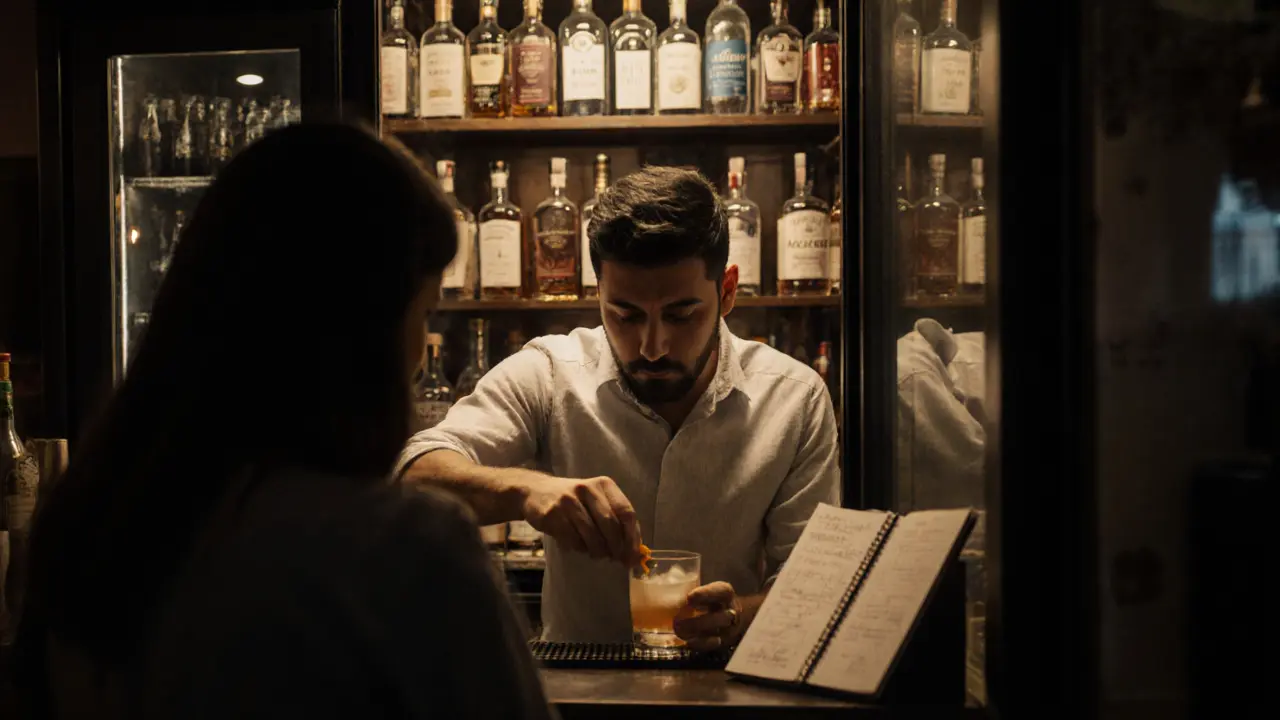
How to Find the Next Big Spot
Don’t rely on Google Maps. Don’t follow influencers. Here’s how real locals find the new hotspots:
- Join Dubai’s underground WhatsApp groups. Search for “Dubai Nightlife Exchange” or “Hidden Bars UAE.” You’ll get real-time updates.
- Follow local DJs on SoundCloud, not Instagram. They post setlists and venue hints.
- Visit Alserkal Avenue on a Thursday. Many new venues open their doors there first.
- Ask hotel concierges who’ve been in Dubai for over five years. The new ones won’t know.
- Go alone. The best conversations-and the best discoveries-happen when you’re not with a group.
What to Expect in 2026
By next year, Dubai will have at least three new venues opening that combine nightlife with art installations. One, called Echo Chamber, will let you walk through a sound-responsive light tunnel after your drink. Another, Desert Echo, will host midnight poetry readings under real sand dunes set up inside a warehouse.
Expect more pop-ups. More collaborations between chefs and DJs. More venues that don’t advertise at all. The city’s nightlife is no longer about showing off. It’s about feeling something real.
Are Dubai clubs still expensive?
Some still are, but the new wave of spots is changing that. Places like Al Marfa and The Quiet Room have no cover charge. Cocktails start at AED 45. Even rooftop spots like Atmosphere 360 now offer affordable two-hour slots starting at AED 180. You don’t need to spend hundreds to have a great night out anymore.
Is Dubai nightlife safe for solo travelers?
Yes, especially in the new venues. The city has strong security, and most of the emerging spots are run by locals who prioritize a respectful, calm environment. Avoid places that push bottle service or have aggressive bouncers. Stick to places with good reviews from expat communities and local blogs.
What’s the dress code now?
It’s relaxed. No more suits and heels unless you’re going to a traditional luxury lounge. Most new spots accept smart casual-clean jeans, a nice top, or a linen shirt. Flip-flops and tank tops are still a no-go in most places, but you won’t be turned away for not wearing a blazer.
Do I need to book ahead?
For the big names like Cielo or White Dubai, yes. For the new spots? Sometimes. Al Marfa and Atmosphere 360 require reservations. El Nido and The Quiet Room don’t. But showing up early helps. Many of these places cap attendance to keep the vibe intimate.
What time do these places get busy?
It’s shifted. Most new clubs don’t fill up until 11 PM. The real energy starts at midnight. By 2 AM, you’ll find the best sets and the most interesting people. Don’t show up at 9 PM expecting a party-it’s still dinner time for most locals.
If you’re looking for the real pulse of Dubai’s night, skip the billboards. Walk down Alserkal Avenue after dark. Sit in a quiet corner at The Quiet Room. Let a bartender read your mood. You’ll leave with more than a drink-you’ll leave with a story.
